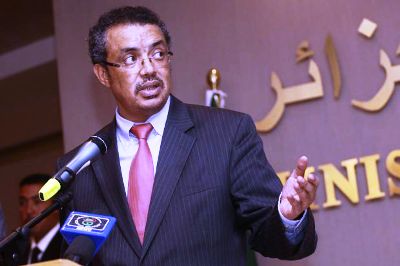Ethiopia says will mediate South Sudan crisis
By Tesfa-Alem Tekle
December 24, 2013 (ADDIS ABABA) – The Ethiopian government on Tuesday said it was ready to provide diplomatic efforts seeking a peaceful solution to the ongoing political crisis in neighbouring South Sudan.

The incident, president Salva Kiir said, was instigated by his former vice-president, Riek Machar, but the latter said it was a move initiated to crack down on those opposed to the ruling party leader.
Ethiopia’s foreign minister Tedros Adhanom said Addis Ababa, as current chair of the Inter-Governmental Authority on Development (IGAD), seeks to foster dialogue between the two conflicting parties.
An IGAD delegation to Juba, led by Tedros, also held talks with president Kiir, who expressed willingness for talks with his opponents.
Machar has, on the other hand, demanded the senior officials detained in connection with the unrest be release without any precondition, before any dialogue could take place with Kiir.
“Unless the two sides soon engage in a political dialogue and end their political differences, the current situation could spark a civil war in the world’s youngest nation causing huge loss on human lives and on the country’s fragile economy,” said Tedros.
He further called on other East African nations to seek ways of restoring regional peace and stability in the two-year old nation.
Also underway, Tedros said, was a joint plan to evacuate Ethiopians and other East African national trapped in the country’s violence.
Last week, sporadic gunfire rocked Juba and later expanded to other parts of the country, as rebels claimed capture of its oil-rich Unity and Jonglei states. But the army, on Tuesday, said it manage to retake the rebel-held Jonglei capital, Bor.
The UN Security Council has unanimously voted for an increase of its peacekeepers in South Sudan from 7,000 to 12,500 troops, including 1,323 police in order to protect civilians in the country.
(ST)
